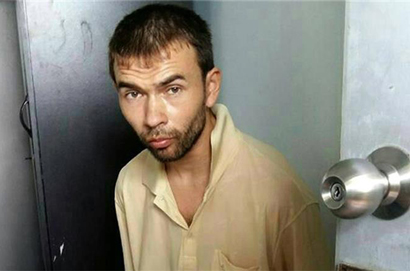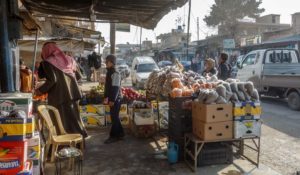
By: The Guardian
Source: The Guardian
A foreign suspect arrested at Thailand’s border near Cambodia is unlikely to be the man in a yellow shirt accused of planting the bomb at a Bangkok shrine nearly three weeks ago, police have said.
The definitive ruling out of the suspect – identified as Mieraili Yusufu or Yusufu Meerailee, thought to be from Xinjiang, a region in northwest China – suggests that the person who bombed the Erawan shrine in Bangkok on 17 August remains at large despite two arrests and naming of seven other suspects in recent days.
The blast left 20 people dead and more than 120 injured in one of the most devastating acts of violence that the Thai capital had seen in decades.
National police spokesman Prawut Thavornsiri said DNA samples taken from the suspect did not match the DNA found on the banknote that the bomber is believed to have left behind in a motorcycle taxi he took after leaving the pipe bomb under a bench at the open-air shrine when it was packed with worshippers.
“Now we don’t have any evidence to say that he is the yellow-shirted man … from the investigation maybe he is not (the yellow-shirted man),” Prawut told reporters. “However, he is definitely involved with the bombing,.”
Prawut said police were certain of this because his DNA was found in the two apartments on the outskirts of Bangkok where bomb-making materials were also found.
“He was staying at both places,” he added. “This means that the man is involved in bomb-stocking places.”
Another suspect who was arrested at one of the apartments on Saturday has also been ruled out as being the bomber. Police have also issued arrest warrants for seven other suspects.
On Friday, Thai authorities unveiled the centrepiece of the Erawan shrine, which was slightly damaged in the blast. The swiftness with which the shrine has been repaired and reopened to the public is the latest bid to boost confidence among Bangkok’s tourism and business communities. Authorities have also intentionally avoided calling the bombing an act of terrorism for fear of hurting Thailand’s image abroad.
“The most important issue for the country’s image is to restore confidence about safety,” the minister of culture, Vira Rojpojchanarat, said at Friday’s ceremony. He said the unveiling was intended to “create confidence and raise the morale of (Thai) people and tourists”.
The ministry’s fine arts department repaired 12 areas of the shrine’s golden statue of the Hindu god Brahma that were damaged by the attack, notably on its four-headed face where a chin was damaged, Vira said.
“Every day the police and national security are making progress on the case,” Vira added.
Prawut said that at another raid on Thursday Thai authorities had found “suspicious fluid” in a barrel that was being analysed by explosives experts. However, military spokesman Winthai Suvaree revealed on Friday that initial tests showed that the fluid “cannot be used as explosive components”.






